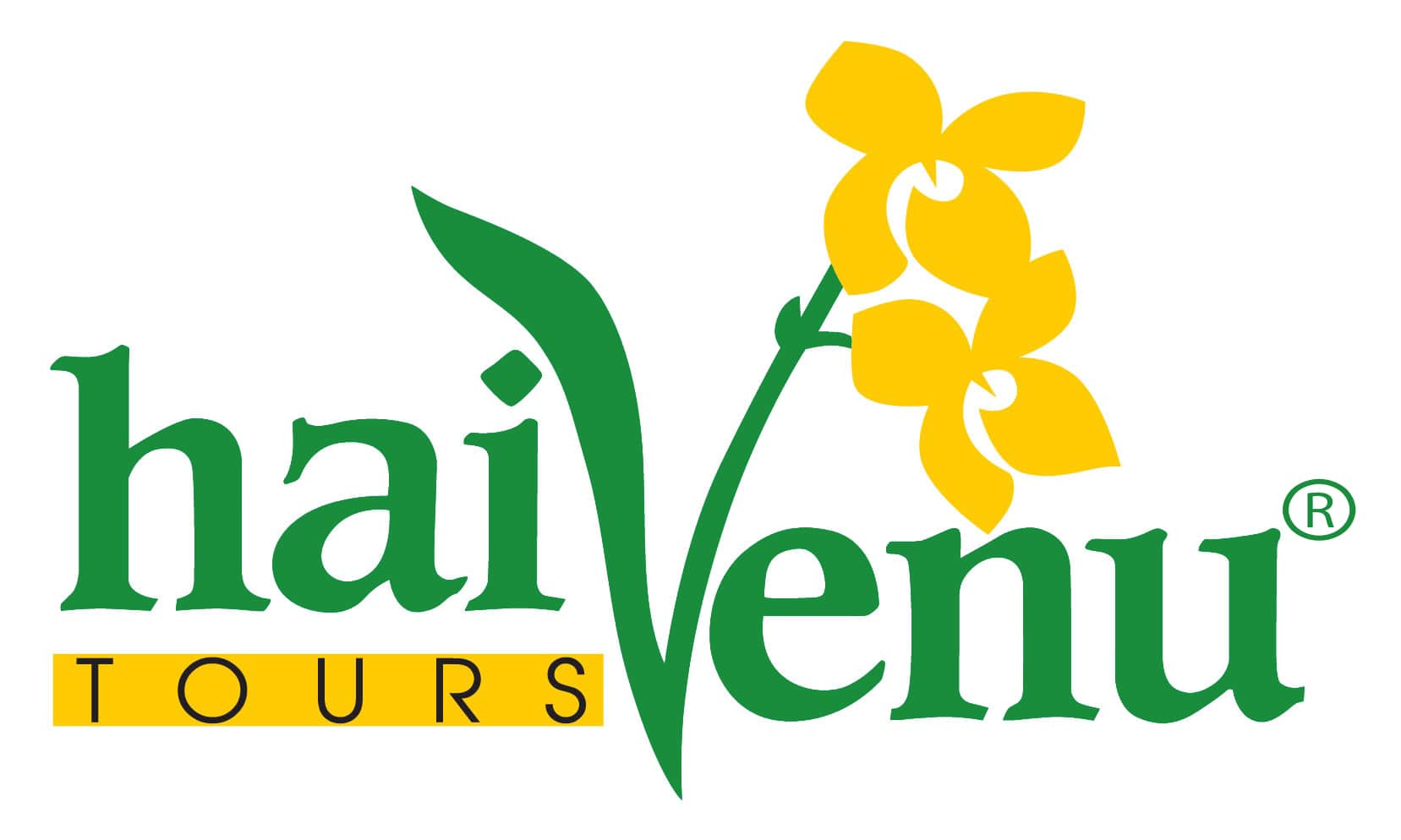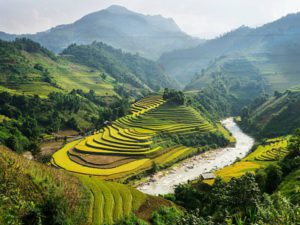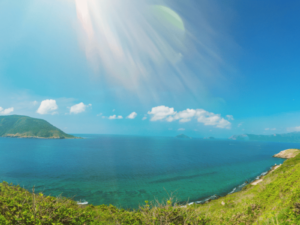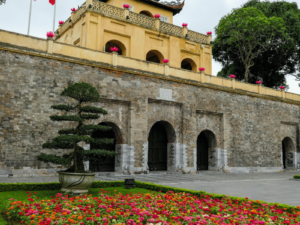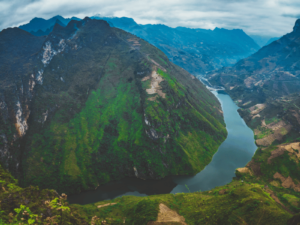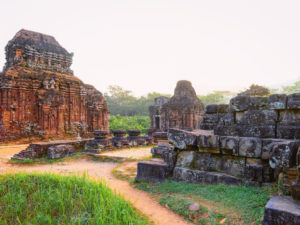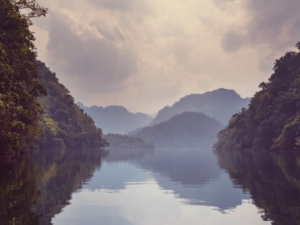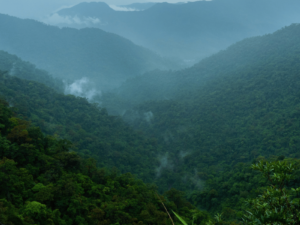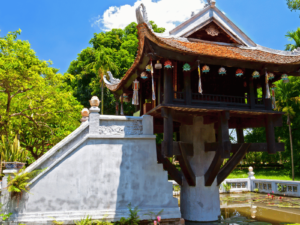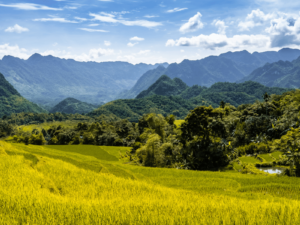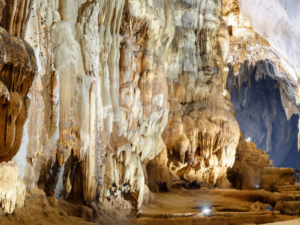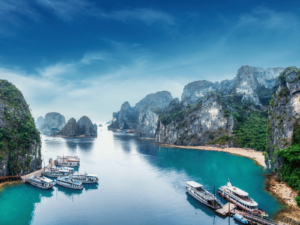Necessary information
Environmental Conservation
Eco tourism plays a vital role in reducing environmental impact and preserving Vietnam’s stunning natural landscapes. By opting for eco-friendly tours in Vietnam, you actively support practices that minimize pollution, conserve resources, and protect wildlife habitats. These tours often incorporate sustainable methods such as waste reduction, recycling initiatives, and the use of renewable energy sources.
In addition, many eco tours in Vietnam integrate environmental education activities, raising awareness about issues such as deforestation, endangered species, and marine conservation. Visitors can participate in projects like beach cleanups, reforestation efforts, or wildlife protection programs, ensuring the preservation of Vietnam’s rich biodiversity for future generations. For example, eco tours in Con Dao National Park often involve learning about sea turtle conservation, while visits to Phong Nha-Ke Bang National Park highlight the importance of protecting its unique cave systems and forest ecosystems.
Cultural Preservation
A key benefit of eco tourism is its role in preserving Vietnam’s vibrant cultural heritage. Eco tours often provide immersive experiences by encouraging travelers to stay in local villages, participate in traditional activities, and connect with ethnic minority groups. These interactions foster a deeper appreciation for Vietnam’s diverse cultures and traditions, from Tay stilt houses in Ba Be Lake to the Hmong textiles in Sapa.
By engaging in cultural workshops, such as weaving, cooking classes, or folk music performances, visitors gain insight into the everyday lives of local communities. These experiences not only enrich the traveler’s journey but also provide much-needed income for communities, helping them sustain their unique customs and lifestyles.
In Vietnam, community-based tourism initiatives ensure that eco-tourism activities directly benefit local people. Programs like the Muong Lo Rice Terraces Tours and Mekong Delta village homestays are designed to protect cultural heritage while promoting sustainable tourism.
Economic Benefits of Eco Tourism
Eco tourism contributes significantly to the economic development of Vietnam by creating jobs, supporting small businesses, and fostering entrepreneurship. It provides direct benefits to local communities, ensuring that tourism dollars stay within the region and help reduce poverty.
Activities such as staying in eco-lodges, dining at family-run restaurants, and shopping at local markets empower locals to develop sustainable livelihoods. For instance, eco-tourists visiting the Mekong Delta can interact with farmers, purchase handmade crafts, and support organic farms. Similarly, eco tours in Cat Ba National Park often employ local guides and promote the sale of regional products.
By choosing eco tours, travelers play a vital role in promoting sustainable development, ensuring that tourism continues to benefit both people and the planet. This approach strengthens the local economy, protects cultural traditions, and preserves Vietnam’s incredible natural beauty.
Phong Nha-Ke Bang National Park
A UNESCO World Heritage Site, Phong Nha-Ke Bang National Park is celebrated for its breathtaking limestone karst landscapes, expansive cave systems, and rich biodiversity. This park is a must-visit for eco tourists seeking both adventure and immersion in nature.
Eco-Friendly Activities:
- Discover the world-renowned Son Doong Cave, the largest cave on Earth, or explore the ethereal beauty of Paradise Cave and Phong Nha Cave.
- Take part in kayaking trips along the Chay River, winding through serene natural landscapes.
- Join guided wildlife tours to spot rare species such as the Ha Tinh langur and other endangered animals.
- Stay in eco-friendly accommodations that prioritize sustainability, offering a comfortable yet environmentally conscious experience.
Phong Nha-Ke Bang is a testament to Vietnam’s commitment to preserving its natural wonders, offering eco-conscious travelers an unforgettable adventure.
Cat Tien National Park
Cat Tien National Park is a haven for nature lovers and one of Vietnam’s most important conservation areas, boasting diverse ecosystems and abundant wildlife.
Eco-Friendly Activities:
- Embark on trekking adventures and bird-watching tours to uncover the park’s lush forests and wetlands.
- Visit the Dao Tien Endangered Primate Species Centre to learn about efforts to protect gibbons and other primates.
- Experience night safaris, where you can observe nocturnal wildlife like civets and porcupines in their natural habitat.
With its focus on wildlife conservation and eco-friendly tourism, Cat Tien offers a rare glimpse into Vietnam’s incredible biodiversity.
Cuc Phuong National Park
Vietnam’s oldest national park, Cuc Phuong National Park, is a treasure trove of biodiversity and cultural heritage, renowned for its ancient forests and conservation initiatives.
Eco-Friendly Activities:
- Explore hiking trails that lead through dense forests, centuries-old trees, and prehistoric caves housing ancient relics.
- Visit the Endangered Primate Rescue Centre, where you can witness rehabilitation efforts for critically endangered primates.
- Participate in night safaris to spot nocturnal creatures, from colorful insects to rare reptiles and mammals.
Cuc Phuong offers a combination of nature, history, and conservation education, making it a standout destination for eco travelers.
Mekong Delta
The Mekong Delta, often called the "rice bowl of Vietnam," is a lush and vibrant region crisscrossed by rivers, swamps, and islands. It’s a perfect destination for eco tourists interested in exploring agricultural and water-based lifestyles.
Eco-Friendly Activities:
- Take traditional boat tours through the delta’s iconic floating markets, such as Cai Rang, and experience the vibrant local culture.
- Visit local farms to learn about sustainable agricultural practices and enjoy fresh tropical fruits.
- Cycle through scenic countryside paths, passing rice paddies, coconut groves, and charming villages.
- Stay in homestays with local families, experiencing authentic Mekong Delta hospitality while supporting community-based tourism.
The Mekong Delta offers a unique blend of culture, nature, and sustainability, ensuring a meaningful travel experience.
Pu Luong Nature Reserve
Tucked away in northern Vietnam, Pu Luong Nature Reserve is a hidden gem featuring terraced rice fields, limestone mountains, and diverse ecosystems.
Eco-Friendly Activities:
- Trek through picturesque rice terraces and bamboo forests, enjoying panoramic views of the surrounding landscapes.
- Visit ethnic minority villages, such as the Thai and Muong communities, to learn about their traditions and sustainable ways of life.
- Experience bamboo rafting on calm rivers, offering a peaceful way to immerse yourself in the natural surroundings.
- Stay in eco-friendly lodges or homestays that emphasize sustainability and community involvement.
Pu Luong is a perfect destination for travelers seeking tranquility, cultural immersion, and eco-conscious experiences.
Community-Based Tourism: Connecting with Local Culture
Engaging in community-based tourism offers travelers the chance to fully immerse themselves in the local way of life while contributing directly to the well-being of rural communities. By staying in homestays and participating in community projects, visitors can gain a deeper understanding of Vietnamese traditions and support sustainable development.
Activities to Experience:
- Learn traditional crafts such as weaving, pottery, or bamboo carpentry alongside skilled artisans.
- Join local families in farming activities, helping to plant rice, tend to crops, or harvest vegetables.
- Take part in cooking classes, where you’ll prepare authentic Vietnamese dishes using locally sourced ingredients.
Examples of community-based tourism destinations include the Mekong Delta, where homestays offer authentic cultural experiences, and Pu Luong Nature Reserve, where visitors can engage with ethnic minority communities and explore their customs.
Wildlife Conservation Projects: Protecting Biodiversity
For those passionate about preserving nature, wildlife conservation projects in Vietnam provide an opportunity to make a tangible impact on the environment. These initiatives focus on protecting endangered species, restoring habitats, and educating the public about biodiversity conservation.
Activities to Get Involved In:
- Volunteer in monitoring programs to track wildlife populations like gibbons, langurs, and sea turtles.
- Participate in habitat restoration by planting trees and removing invasive species.
- Help with public education campaigns, raising awareness about the importance of protecting endangered species.
Notable locations include the Dao Tien Endangered Primate Species Centre in Cat Tien National Park and the Con Dao National Park turtle conservation program.
Organic Farming and Agro-Tourism: Sustainable Agriculture Experiences
Organic farming tours provide hands-on experiences in sustainable agriculture while promoting eco-friendly practices. These tours are perfect for travelers interested in environmental sustainability and healthy living.
What You Can Do:
- Participate in activities such as planting, harvesting, and composting.
- Learn about innovative techniques like crop rotation, organic pest control, and water management.
- Enjoy a farm-to-table meal featuring freshly harvested produce and traditional Vietnamese recipes.
Destinations like the Tra Que Vegetable Village near Hoi An and farms in the Mekong Delta offer immersive agro-tourism experiences, allowing you to connect with the land and its caretakers.
Eco-Friendly Accommodations: Sustainable Stays
Choosing eco-lodges and green hotels not only minimizes your carbon footprint but also enhances your travel experience with unique and environmentally conscious stays. These accommodations are designed to harmonize with nature while promoting sustainability.
Features of Eco-Friendly Accommodations:
- Use of renewable energy sources such as solar panels or wind turbines.
- Implementation of waste reduction initiatives, including composting, recycling, and plastic-free policies.
- Support for local communities by sourcing materials, products, and staff locally.
Notable examples include the Avana Retreat in Mai Chau, which blends modern luxury with sustainable practices, and Six Senses Con Dao, known for its eco-conscious design and community involvement.
Prioritize Reputable and Sustainable Tour Operators
When embarking on an eco-friendly adventure, choosing a reputable eco tour operator is essential. Look for companies that demonstrate a genuine commitment to sustainability and responsible travel. Reliable operators often incorporate environmental conservation, cultural preservation, and community support into their tours, ensuring that your experience contributes positively to the destination.
Key Factors to Consider:
- Proven Track Record: Opt for operators with strong customer reviews and a history of offering exceptional eco tours. Feedback from previous travelers can provide insights into the operator’s professionalism and commitment to sustainability.
- Sustainability Practices: Choose operators that actively reduce environmental impact through initiatives like waste reduction, use of renewable energy, or collaboration with local communities.
- Certifications: Look for certifications from organizations like Travelife, Green Globe, or Responsible Travel, which indicate adherence to high sustainability standards.
Personalize Your Eco Tour for an Unforgettable Experience
For a truly unique journey, opt for customized eco tour packages tailored to your interests and travel preferences. Leading eco tour operators in Vietnam specialize in crafting bespoke itineraries that combine comfort, cultural immersion, and environmental responsibility.
Benefits of Tailor-Made Eco Tours:
- Exclusive Activities: Enjoy private experiences like guided treks in Phong Nha-Ke Bang National Park, bamboo rafting in Pu Luong, or ethnic village visits in the Mekong Delta.
- Eco-Friendly Accommodations: Stay in sustainable lodges, eco-resorts, or homestays that prioritize renewable energy, local sourcing, and minimal environmental impact.
- Private Transportation: Choose low-emission transportation options like electric vehicles or eco-boats, reducing your carbon footprint while exploring Vietnam’s breathtaking landscapes.
Collaborate with the Tour Operator
To ensure your eco tour aligns perfectly with your preferences, openly discuss your needs with the tour operator. Share your interests, whether they involve exploring wildlife conservation areas, enjoying organic farm-to-table dining, or engaging in community-based tourism. A skilled operator will create a well-rounded itinerary that balances sustainability, luxury, and authenticity.
Choosing the right eco tour operator and personalizing your travel experience allows you to discover Vietnam’s stunning natural beauty and vibrant cultures responsibly. By supporting sustainable tourism practices, you contribute to environmental conservation, cultural preservation, and economic development in local communities, making your journey both enriching and impactful.
Choosing the Right Time to Visit
Selecting the optimal time for eco tourism in Vietnam depends on your preferred activities and the regions you wish to explore. Generally, the dry season from November to April is ideal, offering pleasant weather and clear skies that enhance outdoor experiences like trekking in Phong Nha-Ke Bang National Park, kayaking in Ha Long Bay, or cycling in the Mekong Delta. However, if you’re interested in seeing lush green rice paddies or enjoying off-peak travel, consider visiting during the rainy season (May to October), particularly in northern or central Vietnam.
Seasonal Highlights:
- November–February: Ideal for exploring northern Vietnam’s landscapes and enjoying cooler weather.
- March–April: Perfect for visiting the central and southern regions, with warm and dry conditions.
- May–October: Great for budget-friendly eco tours and experiencing the vibrant greenery during the rainy season.
Budgeting for Eco Travel
Eco travel offers exceptional value by combining sustainability with enriching, authentic experiences. While costs can vary depending on the level of luxury, eco tours typically emphasize responsible practices that benefit local communities and the environment.
Budget Planning Tips:
- Prioritize Activities: Allocate your budget based on the experiences you value most, whether it’s staying in eco-lodges, engaging in guided wildlife tours, or participating in community-based projects.
- Eco-Friendly Accommodations: Opt for eco-resorts or homestays that balance comfort with sustainability.
- Transportation: Consider eco-friendly options like shared buses, trains, or cycling tours to save money and reduce your carbon footprint.
Booking and Reservations
To secure the best deals and ensure availability, it’s important to plan ahead. Eco tours and accommodations, particularly in sought-after destinations like Cat Tien National Park or Con Dao Islands, tend to book out quickly during peak seasons.
Booking Tips:
- Advance Planning: Book your flights, accommodations, and eco tours at least 3–6 months in advance, especially for high-demand periods like Tet (Vietnamese Lunar New Year).
- Flexible Dates: Consider traveling during shoulder seasons to enjoy lower prices and fewer crowds.
- Direct Booking: Book through reputable eco tour operators to ensure you’re supporting genuine sustainable tourism initiatives.
Travel Tips for Eco Tourists
Preparing for your eco-friendly journey ensures both a smooth travel experience and a positive impact on the destinations you visit.
Eco-Friendly Travel Essentials:
- Reusable Items: Pack reusable water bottles, bags, and utensils to minimize waste.
- Respect Local Communities: Follow local customs and engage respectfully with residents, especially in ethnic minority villages.
- Health & Safety: Stay informed about vaccinations, carry travel insurance, and follow safety guidelines for activities like trekking or kayaking.
- Environmentally Conscious Packing: Bring eco-friendly toiletries and avoid single-use plastics.
By carefully considering the timing, budget, and logistics of your eco tour in Vietnam, you’ll not only maximize your travel experience but also contribute to sustainable tourism. Thoughtful planning ensures that your journey supports conservation efforts, uplifts local communities, and leaves a minimal environmental footprint.
